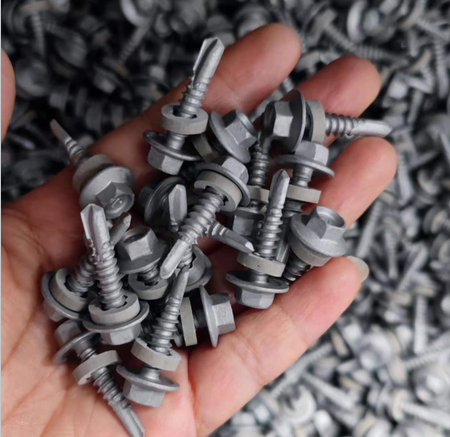china spring washer vs flat washer
A Comparative Analysis of Spring Washers and Flat Washers
When it comes to securing fasteners, washers play a critical role in ensuring that assemblies operate effectively and reliably. Among the various types of washers used in mechanical applications, spring washers and flat washers are two of the most common types. Each serves a unique purpose, and understanding their differences, advantages, and specific applications is essential for engineers and designers when selecting the right component for a given project.
Definitions and Types
Flat Washers Flat washers are thin, circular discs with a hole in the center, typically made from materials like steel, stainless steel, plastic, or rubber. Their primary function is to distribute the load of a fastener over a larger area, reducing the risk of damage to the surface being fastened. They also serve to prevent loosening and provide a smooth surface for securing nuts and bolts.
Spring Washers Spring washers, on the other hand, are designed to exert a spring force and provide tension. Commonly made from carbon steel or stainless steel, they come in various forms, including split, wave, and disc types. The most recognized variant, the split ring washer, is engineered to absorb shock, prevent vibrations, and maintain the torque of fasteners under fluctuating loads.
Performance and Functionality
The primary function of flat washers is load distribution. By increasing the bearing surface area, flat washers help to prevent the bolt or nut from damaging the material it is fastening, especially in softer materials. While they do help in securing fasteners, flat washers do not have any inherent tension properties. This means that once tightened, they may not provide ongoing resistance to loosening over time.
In contrast, spring washers are specifically designed to counteract vibration and dynamic loads. They maintain a constant load on the nut or bolt, providing a 'spring' action that keeps the connection tight. This dynamic cushioning helps to counteract any potential loosening caused by equipment movement, thermal expansion, or vibration—a common problem in mechanical assemblies, especially in automobiles and machinery.
Applications
Both types of washers find a variety of applications across numerous industries
china spring washer vs flat washer

- Flat Washers These washers are frequently used in general construction, plumbing, and automotive applications where a secure and distributed load is necessary. Their straightforward functionality makes them ideal for a wide array of non-vibrating applications, or where the parts are not subject to significant movement.
- Spring Washers These are utilized in applications where vibration or repeated motion is present. For instance, in automotive engines, machinery parts, and aerospace components, spring washers are essential in maintaining tightness in bolts and nuts, thereby enhancing the longevity and safety of the assembly.
Advantages and Limitations
When selecting between a flat washer and a spring washer, it's crucial to consider their advantages and limitations.
Advantages of Flat Washers - Simple in design and cost-effective. - Excellent for load distribution. - Easily available in a variety of materials and sizes.
Limitations of Flat Washers - Do not provide ongoing pressure to prevent loosening. - Limited effectiveness in high-vibration environments.
Advantages of Spring Washers - Excellent for applications subjected to vibration. - Provides continuous tension, reducing the risk of loosening. - Available in various forms to suit specific applications.
Limitations of Spring Washers - More complex than flat washers, which can lead to higher costs. - Depending on the design, they may require precise installation to function effectively.
Conclusion
In summary, flat washers and spring washers serve distinct purposes in mechanical assemblies. While flat washers are ideal for load distribution and simple fastening applications, spring washers are suited for dynamic environments where vibration and movement can cause loosening. Choosing the correct type of washer is crucial for achieving optimal performance in any engineering design. By carefully evaluating the specific requirements of an application, engineers can determine the most suitable washer to ensure durability and reliability in their projects.
-
Top Choices for Plasterboard FixingNewsDec.26,2024
-
The Versatility of Specialty WashersNewsDec.26,2024
-
Secure Your ProjectsNewsDec.26,2024
-
Essential Screws for Chipboard Flooring ProjectsNewsDec.26,2024
-
Choosing the Right Drywall ScrewsNewsDec.26,2024
-
Black Phosphate Screws for Superior PerformanceNewsDec.26,2024
-
The Versatile Choice of Nylon Flat Washers for Your NeedsNewsDec.18,2024










